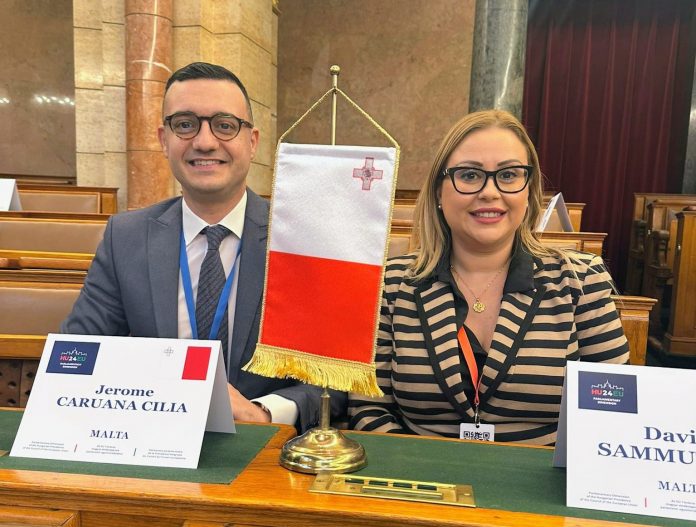A delegation of the Maltese Parliament comprising Davina Sammut Hili and Jerome Caruana Cilia participated in the Inter-parliamentary Conference on Stability, Economic Coordination and Governance (IPC-SECG) in the EU which took place in Budapest, Hungary 3 and 4 October. This conference was organised within the framework of the interparliamentary dimension of the Hungarian Presidency of the Council of the European Union.
Several subjects were on the agenda of the meeting including the competitive advantage of the emergence of electric cars in the European Union and the required preparations for decision-making, the reform of the economic governance framework and the impact of the EU budget for cohesion policy on the multiannual financial framework.
Deputy Speaker of the Hungarian National Assembly, János Latoricai, opened the conference.
The conference also discussed the new economic governance framework from the Hungarian point of view, following its introduction during this past year. Jerome Caruana Cilia addressed this session and emphasised that member states need to comply with budgetary discipline. He stressed that this is imperative to ensure stability and growth. Caruana Cilia underscored that the EU needs to ensure that in the current geo-political instabilities and the various risks that our SMEs and businesses are facing, the EU should be more proactive and dynamic in enhancing growth. While investing in innovation and digital transformation, which is key to strengthening the single market, EU action should promote labour mobility, and the reduction of regulatory barriers.
The final session which dealt with the impact of the EU budget for cohesion policy on the multiannual financial framework, included a video message by Elisa Ferreira, European Commissioner for Cohesion and Reforms. Commissioner Ferreira explained that the EU Budget for cohesion policy is important because investments for stability and growth through transport, energy, ICT, and research facilities contribute to kickstarting policies and projects to improve the standards of life of all European countries and ensure that nobody is left behind.
Photo (HOR)
![]()








